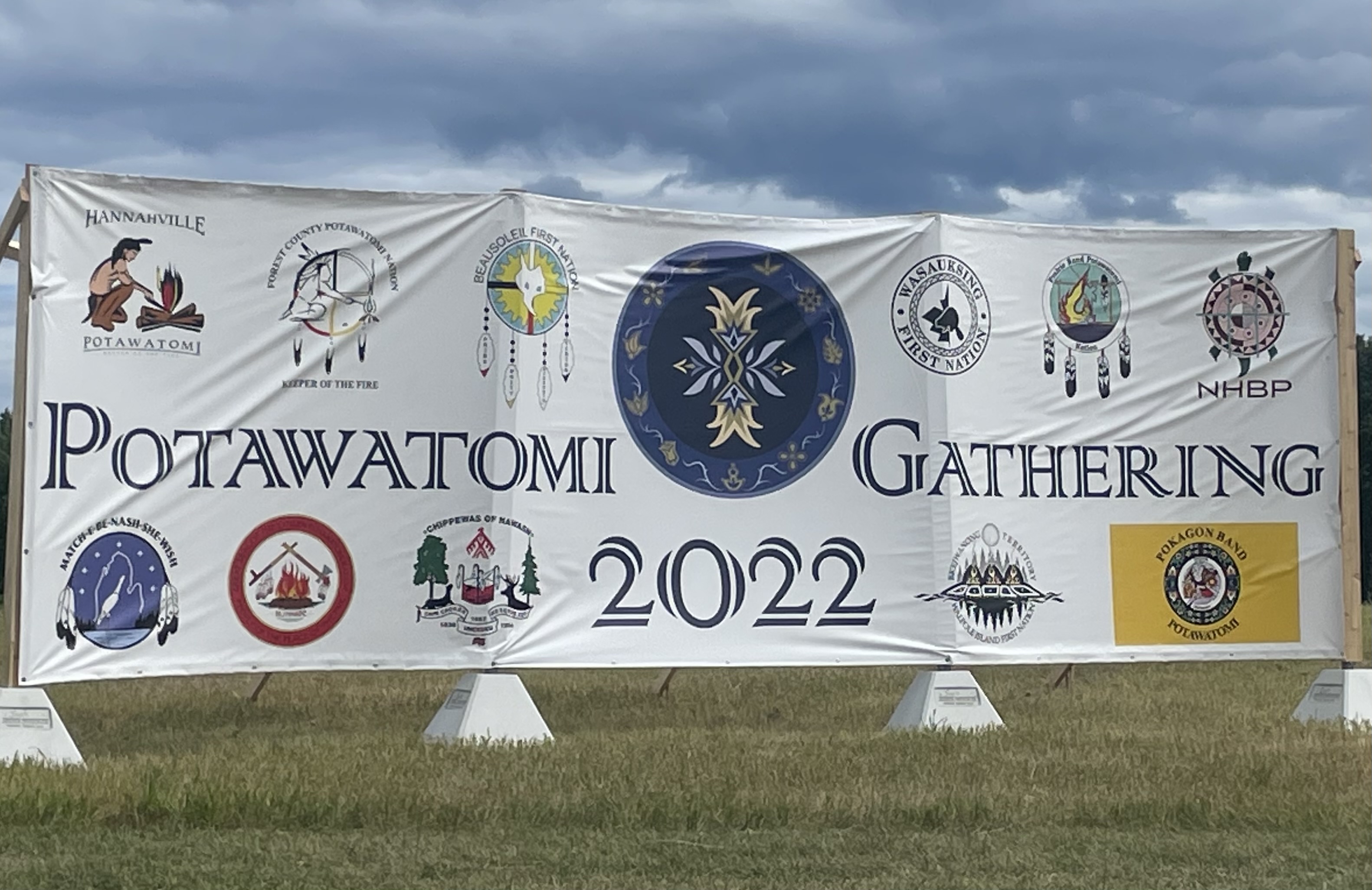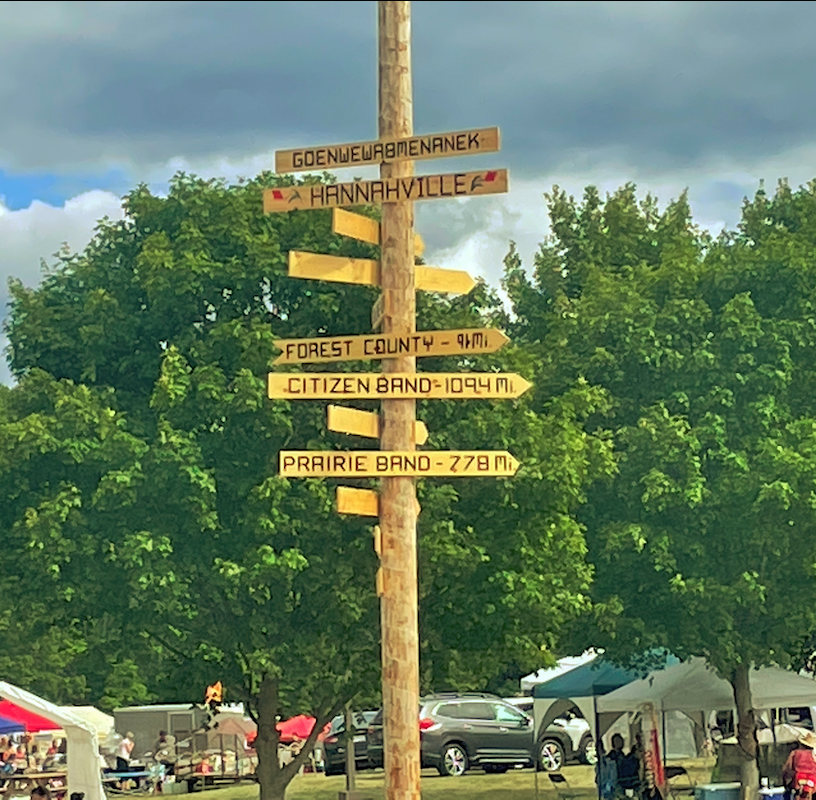
- Details
- By Levi Rickert
HANNAHVILLE INDIAN RESERVATION — Over 2,000 individuals from 11 Potawatomi nations are gathering this week in Michigan’s Upper Peninsula at the Hannahville Indian Reservation, near Escanaba, Mich. for the Potawatomi Gathering 2022.
Hosted by the Hannahville Indian Community, the Potawatomi Gathering resumed after a two-year hiatus because of the COVID-19 pandemic.
Earlier in the week, hundreds attended a language conference that was held just prior to the Potawatomi Gathering. On Friday, tribal leaders voted to combine the langauge portion into future Gatherings.
On Friday evening, the Hannahville Indian Community hosted a powwow. Drums from several Potawatomi bands were present and hundreds of Potawatomi dancers were in regalia to the appreciation of the assembled crowd.

As he offered remarks during the opening of the powwow, Hannahville Indian Community Chairperson Kenneth Meshigaud asked the crowd to observe a moment of silence for those lost to Potawatomi tribal communities during the COVID-19 pandemic.
The Nottawaseppi Huron Band of the Potawatomi, located on the Pine Creek Reservation in Fulton, Mich. will host the Potawatomi Gathering 2023 next summer.
https://www.nativenewsonline.net/currents/photos-potawatomi-gathering-2022-on-hannahville-indian-reservation#sigProIdd2f42f4796
More Stories Like This
Native News Weekly (August 25, 2024): D.C. BriefsUS Presidents in Their Own Words Concerning American Indians
Native News Weekly (January 18, 2026): D.C. Briefs
Federal Judge Orders ICE to Halt Use of Pepper Spray, Arrests of Peaceful Protesters in Twin Cities
Tunica-Biloxi Cultural Leader John D. Barbry Walks On
Help us defend tribal sovereignty.
At Native News Online, our mission is rooted in telling the stories that strengthen sovereignty and uplift Indigenous voices — not just at year’s end, but every single day.
Because of your generosity last year, we were able to keep our reporters on the ground in tribal communities, at national gatherings and in the halls of Congress — covering the issues that matter most to Indian Country: sovereignty, culture, education, health and economic opportunity.
That support sustained us through a tough year in 2025. Now, as we look to the year ahead, we need your help right now to ensure warrior journalism remains strong — reporting that defends tribal sovereignty, amplifies Native truth, and holds power accountable.
 The stakes couldn't be higher. Your support keeps Native voices heard, Native stories told and Native sovereignty defended.
The stakes couldn't be higher. Your support keeps Native voices heard, Native stories told and Native sovereignty defended.
Stand with Warrior Journalism today.
Levi Rickert (Potawatomi), Editor & Publisher



